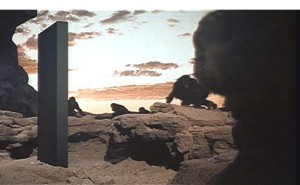 Over at the American Conservative, Noah Millman is frustrated by the nature of the debate between scientists (or “science popularizers”) and theists.
Over at the American Conservative, Noah Millman is frustrated by the nature of the debate between scientists (or “science popularizers”) and theists.
I feel like we go around this track every other month. A scientist or science-popularizer writes an unpersuasive essay arguing that science “proves” that religion is bad for children and other living things; a theist responds with an unpersuasive essay arguing that without some grounding in the divine, we’re doomed to become Nazis.
Millman makes some leaps that I wouldn’t, but this is worth noting:
It’s almost as if neither side can accept the possibility that religion is a natural phenomenon. Steven Pinker wrote a whole book against the idea that we can simply ignore our innate natures when we concoct schemes for social improvement. How, then, can he blithely assume that we can, as a species, move beyond a phenomenon – religion – as old as our knowledge of ourselves?
Fair point. We cannot. Religion will always be with us in some shape or form. It’s that shape and that form—and how to house it—that should really concern us.
Anyway, read the whole piece. Food for thought.

I enjoyed Millman’s response much more than I enjoyed Douthat’s. Douthat seemed to go out of his way to misinterpret what Pinker was saying.
But even Millman seemed to overstate Pinker’s case to make it easier to criticize. I didn’t read Pinker as claiming that religion should go away or that science would replace religion or art or the humanities. In fact he explicitly talked about how science can inform other ways of approaching understanding and gave a big shout out to EO Wilson’s /consilience/ project.
It was almost as though Millman decided that he needed to write a ‘he said she said’ piece and had to stretch Pinker’s words to make them fit Millman’s narrative. I don’t want to be too critical though because I found Millman’s point of view refreshing and informative. I definitely learned something from reading it.
I wonder if Mr Hume will have something to say about it here.